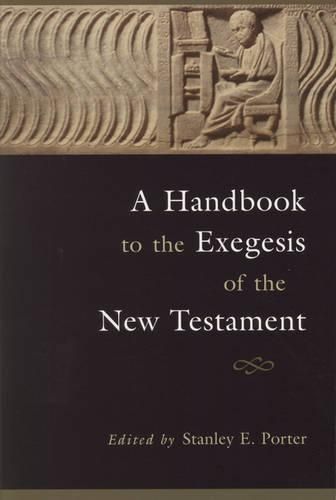Readings Newsletter
Become a Readings Member to make your shopping experience even easier.
Sign in or sign up for free!
You’re not far away from qualifying for FREE standard shipping within Australia
You’ve qualified for FREE standard shipping within Australia
The cart is loading…






A theoretical and practical guide to the multifaceted discipline of New Testament exegesis. This volume seeks to cover topics in New Testament exegesis in sufficient depth to provide a useful methodological basis. The introduction includes an analysis of the various definitions of exegesis, a term notoriously difficult to define, and a bibliographic essay covering the basic tools of exegesis. A section on method includes detailed discussions of the different models used in the major approaches to exegesis: textual criticism; linguistic analysis; genre criticism; source, form and redaction criticism; discourse analysis; rhetorical and narratological criticism; literary criticism; and canonical criticism. Also included are models based on analysis of the backgrounds of the New Testament in Hellenistic philosophy, ancient Judaism, the Roman Empire, and the works of second-century authors. In a section on application, exegetical methods are applied to the various literary units of the New Testament.
$9.00 standard shipping within Australia
FREE standard shipping within Australia for orders over $100.00
Express & International shipping calculated at checkout
A theoretical and practical guide to the multifaceted discipline of New Testament exegesis. This volume seeks to cover topics in New Testament exegesis in sufficient depth to provide a useful methodological basis. The introduction includes an analysis of the various definitions of exegesis, a term notoriously difficult to define, and a bibliographic essay covering the basic tools of exegesis. A section on method includes detailed discussions of the different models used in the major approaches to exegesis: textual criticism; linguistic analysis; genre criticism; source, form and redaction criticism; discourse analysis; rhetorical and narratological criticism; literary criticism; and canonical criticism. Also included are models based on analysis of the backgrounds of the New Testament in Hellenistic philosophy, ancient Judaism, the Roman Empire, and the works of second-century authors. In a section on application, exegetical methods are applied to the various literary units of the New Testament.